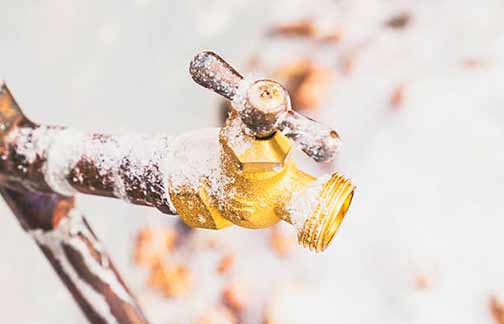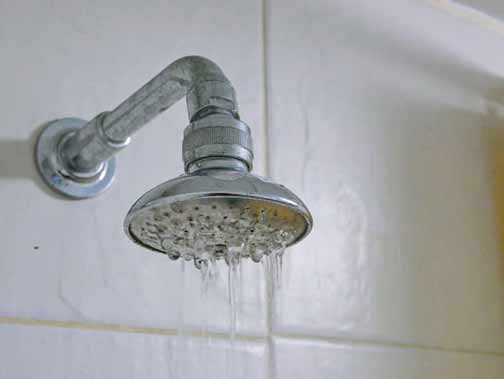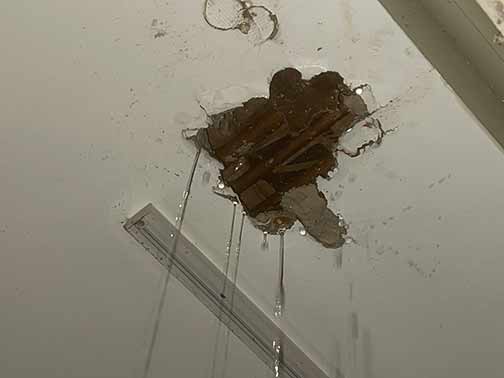
Winter can be a challenging time for homeowners, especially when it comes to plumbing systems. The cold weather can cause a variety of issues that can lead to significant damage if not addressed promptly. Understanding the impact of winter on your plumbing system is the first step in preventing these problems and ensuring your home remains safe and comfortable throughout the season.
Cold temperatures can cause water to freeze and expand, putting pressure on pipes and joints. Additionally, the increased use of heating systems can lead to fluctuations in water pressure, which can further strain your plumbing. Understanding these dynamics can help you take proactive measures to protect your home.
Common Winter Plumbing Problems
There are several common plumbing problems that homeowners may encounter during the winter months. These issues can range from minor inconveniences to major emergencies, and it’s important to be aware of them so you can take the necessary precautions.
Some of the most frequent winter plumbing problems include frozen pipes, burst pipes, water heater malfunctions, and low water pressure. Each of these issues can cause significant damage if not addressed promptly, so it’s crucial to know how to identify and prevent them.
Frozen Pipes: A Major Winter Plumbing Concern
One of the most common and potentially damaging winter plumbing problems is frozen pipes. When the temperature drops, the water inside your pipes can freeze, causing the pipes to expand and potentially burst. This can lead to significant water damage and costly repairs. To prevent frozen pipes, make sure to insulate any exposed pipes, keep your home heated, and allow faucets to drip slightly during extremely cold weather.
Frozen pipes are particularly problematic in areas that are not well-insulated, such as basements, attics, and exterior walls. By taking steps to insulate these areas and keeping your home at a consistent temperature, you can reduce the risk of frozen pipes.
How to Thaw Frozen Pipes Safely
If you suspect that your pipes have frozen, it’s important to act quickly to thaw them safely. Start by turning off the water supply to the affected area to prevent any potential flooding. Then, use a hairdryer or a portable heater to gently warm the frozen section of the pipe. Never use an open flame or high heat source, as this can cause the pipe to burst. Once the pipe has thawed, turn the water supply back on and check for any leaks.
It’s also a good idea to open cabinet doors and allow warm air to circulate around pipes in colder areas of your home. This can help prevent pipes from freezing in the first place and make it easier to thaw them if they do freeze.
Preventing Burst Pipes During Winter
Burst pipes are another common winter plumbing problem that can cause significant damage to your home. To prevent burst pipes, make sure to keep your home adequately heated, especially in areas where pipes are located. Additionally, insulate any exposed pipes and seal any gaps or cracks in your home’s exterior to prevent cold air from reaching the pipes. If you’re going to be away from home for an extended period, consider shutting off the water supply and draining the pipes to prevent any potential issues.
Regularly checking for signs of wear and tear on your pipes can also help prevent burst pipes. Look for cracks, leaks, or other damage, and address any issues promptly to avoid more significant problems down the line.
Dealing with Water Heater Issues in Winter
Water heaters can also experience problems during the winter months, particularly if they are not properly maintained. Cold weather can cause the water heater to work harder, leading to potential malfunctions or breakdowns. To prevent water heater issues, make sure to have your water heater inspected and serviced regularly. Additionally, consider insulating the water heater and the surrounding pipes to improve efficiency and reduce the risk of freezing.
Flushing the water heater to remove sediment buildup and checking the anode rod for corrosion are also important maintenance tasks that can help keep your water heater running smoothly during the winter months.

Addressing Low Water Pressure in Cold Weather
Low water pressure can be a frustrating issue during the winter months, and it can be caused by a variety of factors. Frozen pipes, water main breaks, and increased demand on the water supply can all contribute to low water pressure. If you’re experiencing low water pressure, check for any visible signs of frozen pipes or leaks. If you can’t identify the cause, contact a professional plumber to diagnose and address the issue.
In some cases, low water pressure may be due to issues with your municipal water supply. If this is the case, contacting your local water utility can help you determine if there are any widespread problems that need to be addressed.
Protecting Outdoor Plumbing Fixtures
Outdoor plumbing fixtures, such as garden hoses and sprinkler systems, are particularly vulnerable to winter weather. To protect these fixtures, make sure to disconnect and drain any garden hoses before the first freeze. Additionally, consider installing frost-proof faucets and insulating any exposed outdoor pipes. If you have an irrigation system, make sure to winterize it by draining the water and shutting off the supply to prevent any potential damage.
Covering outdoor faucets with insulated covers can also help protect them from freezing temperatures. These covers are inexpensive and easy to install, making them a simple yet effective way to prevent winter plumbing problems.
Winterizing Your Home’s Plumbing System
Winterizing your home’s plumbing system is an essential step in preventing winter plumbing problems. Start by insulating any exposed pipes, both indoors and outdoors. Seal any gaps or cracks in your home’s exterior to prevent cold air from reaching the pipes. Additionally, make sure to keep your home adequately heated, especially in areas where pipes are located. If you’re going to be away from home for an extended period, consider shutting off the water supply and draining the pipes to prevent any potential issues.
Installing pipe insulation sleeves and heat tape can provide an extra layer of protection for your pipes. These products are readily available at most hardware stores and can be easily installed by homeowners.
Signs of Potential Plumbing Problems in Winter
Being aware of the signs of potential plumbing problems can help you address issues before they become major emergencies. Some common signs to watch for include unusual noises coming from your pipes, low water pressure, slow drains, and water discoloration. If you notice any of these signs, it’s important to contact a professional plumber as soon as possible to diagnose and address the issue.
Other signs of potential plumbing problems include water stains on walls or ceilings, mold or mildew growth, and an unexplained increase in your water bill. These issues can indicate hidden leaks or other plumbing problems that need to be addressed promptly.
The Importance of Regular Plumbing Maintenance
Regular plumbing maintenance is crucial in preventing winter plumbing problems and ensuring your system remains in good working order. Schedule annual inspections with a professional plumber to identify and address any potential issues before they become major problems. Additionally, make sure to perform regular maintenance tasks, such as insulating pipes, sealing gaps, and checking for leaks, to keep your plumbing system in top condition.
Regular maintenance can also help extend the lifespan of your plumbing system and improve its overall efficiency. By taking a proactive approach to plumbing maintenance, you can save money on repairs and reduce the risk of costly water damage.

When to Call a Professional Plumber
While there are many steps you can take to prevent winter plumbing problems, there are times when it’s best to call a professional plumber. If you’re dealing with a major burst pipe emergency or a water heater malfunction, it’s important to seek professional help to ensure the problem is addressed safely and effectively. Additionally, if you’re unsure of how to handle a particular issue or if you’re unable to identify the cause of a problem, a professional plumber can provide the expertise and assistance you need.
Professional plumbers have the tools and experience to diagnose and repair a wide range of plumbing issues. By calling a professional, you can ensure that the problem is resolved quickly and correctly, minimizing the risk of further damage to your home.
Conclusion: Protecting Your Home’s Plumbing System During Winter
Winter plumbing problems can be a major headache for homeowners, but with the right knowledge and precautions, you can protect your plumbing system and prevent costly damage. By understanding the impact of winter on your plumbing system, being aware of common issues, and taking steps to winterize your home, you can ensure your plumbing system remains in good working order throughout the cold months. Remember, regular maintenance and prompt attention to potential problems are key to keeping your home safe and comfortable during the winter season.
By staying vigilant and taking proactive measures, you can enjoy a worry-free winter without the stress of plumbing problems. Investing time and effort into protecting your plumbing system will pay off in the long run, ensuring your home remains a safe and comfortable haven during the coldest months of the year.

